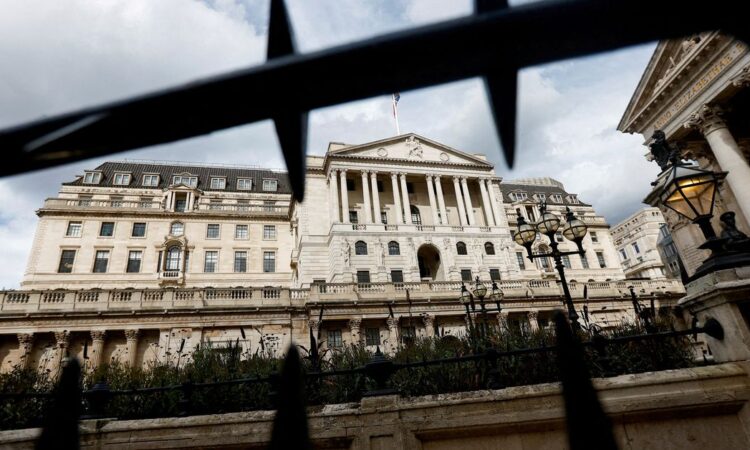
[1/2]A general view shows the Bank of England in London, Britain, September 21, 2023. REUTERS/Peter Nicholls/File Photo Acquire Licensing Rights
LONDON, Nov 3 (Reuters) – Bank of England interest rate-setter Jonathan Haskel said on Friday that Britain’s labour market was not functioning as well as it should, which would keep interest rates high.
Haskel said the ability of the labour market to match workers with vacancies appeared to have deteriorated.
“With an impaired labour market, interest rates would have to remain higher for longer than would otherwise be the case,” he said in remarks he released alongside a panel discussion at a economics conference hosted by King’s College London.
Haskel was one of three members of the BoE’s Monetary Policy Committee who voted for a rate hike on Thursday. A majority of six decided to keep Bank Rate on hold.
Haskel said some modelling he had done suggested Britain’s equilibrium unemployment rate – the rate needed to keep inflation low and stable – had risen as high as 6%.
Haskel said in the panel discussion that this estimate was “very much an upper bound” but that he believed the equilibrium unemployment rate was “probably a bit higher” than the BoE’s latest, upwardly revised estimate.
On Thursday, the BoE revised its estimate of the equilibrium unemployment rate to around 4.5% from 4.25%.
Britain’s unemployment rate was 4.2% in the three months to the end of August.
Haskel said it was not possible to know if unemployment would have to rise above the 5% forecast by the BoE for late 2025 in order to return inflation – currently 6.7% – to its 2% target.
Writing by William Schomberg, editing by Andy Bruce and Alistair Smout
Our Standards: The Thomson Reuters Trust Principles.





